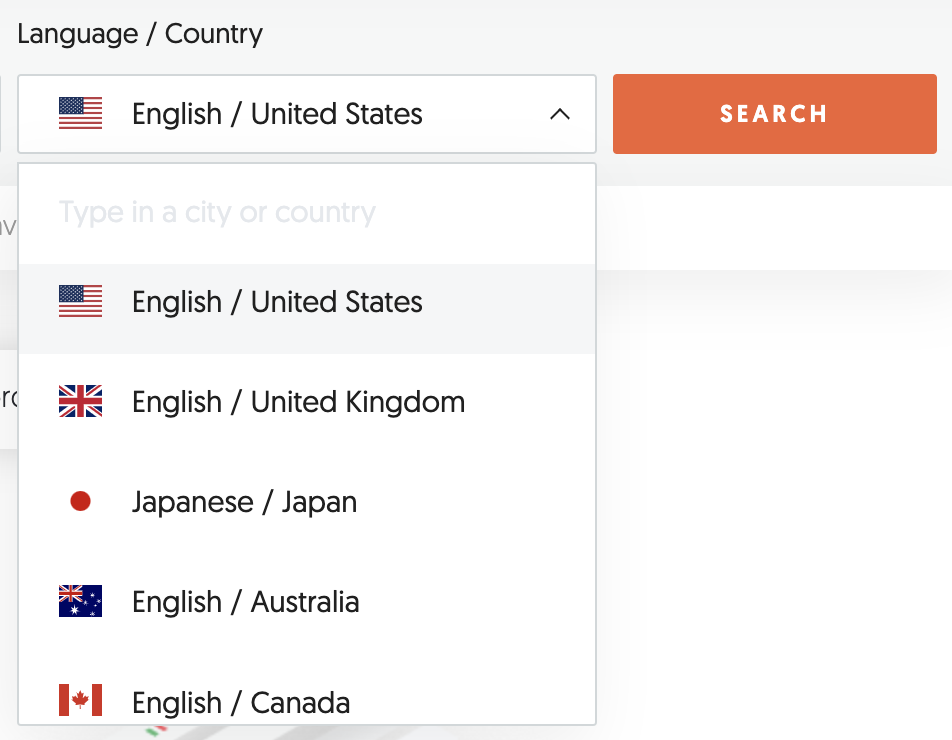Browsing the Digital Landscape: Leveraging International Search Engine Optimization for Cross-Border Success
In today's interconnected digital globe, companies are increasingly looking beyond borders to touch right into international markets. Leveraging search engine optimization (SEO) techniques customized for international target markets is important for accomplishing cross-border success. The intricacy of navigating the digital landscape on an international range requires a nuanced method, from understanding the basics of International SEO to carrying out geotargeting and multilingual keyword approaches. As business strive to broaden their reach and visibility throughout various regions, optimizing web site structures and keeping track of cross-border performance become essential parts of a successful worldwide SEO technique.
Recognizing International Search Engine Optimization Basics
Browsing the complexities of global SEO calls for a solid understanding of essential concepts to successfully expand on-line exposure across borders. One important aspect of worldwide Search engine optimization is comprehending the importance of localization.
Additionally, having a clear understanding of geo-targeting is crucial. This includes indicating to online search engine the certain countries or areas a website is targeting. Carrying out hreflang tags is one means to communicate this info, ensuring that the appropriate variation of a web page shows up in the search results page for an individual in a specific location.
In addition, comprehending the effect of neighborhood search engines and social media sites systems is vital for worldwide SEO success. For circumstances, while Google is leading in several regions, countries like China have their very own search engines like Baidu, needing customized methods for each platform to take full advantage of on the internet visibility.

Targeting Multilingual Key Words Approaches
Establishing multilingual keyword methods is vital for effectively getting to diverse global audiences and making best use of on the internet exposure throughout various linguistic regions. When targeting multilingual search phrase techniques, it is critical to conduct complete research to understand the details search terms and phrases utilized by the target audience in each etymological region. This includes not just converting search phrases however also taking into consideration social nuances, regional dialects, and search trends distinct to every target audience.
To develop an effective multilingual key words method, it is very important to prioritize significance and search intent. Keywords ought to straighten with the content on the site and resonate with the cultural context of the target audience. Utilizing tools such as Google Key Phrase Coordinator, SEMrush, or Ahrefs can help recognize high-performing key words in different languages and analyze their search quantity and competitors level.
In addition, surveillance and assessing the efficiency of multilingual key phrases regularly is essential for optimizing and improving the approach with time. By continually adjusting to adjustments in search actions and fads, organizations can boost their on-line exposure and draw in more global web traffic to their sites.
Implementing Geotargeting and Hreflang Tags
When intending to improve international SEO approaches, incorporating geotargeting and hreflang tags is crucial for enhancing web site visibility throughout different areas. Geotargeting entails customizing web content to particular places, making sure that customers in various areas obtain appropriate information. By executing geotargeting, businesses can improve their local search positions and bring in region-specific web traffic.

Optimizing Website Structure for Worldwide Exposure
To further improve global Search engine optimization techniques past geotargeting and hreflang tags, optimizing the web site framework is imperative for achieving global visibility and taking full advantage of reach across different areas. A well-structured site not just boosts user experience however likewise facilitates search engine crawlers in blog here comprehending the web content and context of the site.
In addition, developing language-specific subdirectories or subdomains can help online search engine deliver the right variation of the site to customers based upon their language preferences, even more boosting the overall individual experience. In addition, enhancing URL frameworks to include appropriate keyword phrases and geotargeted terms can boost the website's visibility in different regions. By structuring the site properly for international audiences, businesses can raise their possibilities of attracting global website traffic and expanding their reach throughout boundaries.

Surveillance and Analyzing Cross-Border Efficiency
Efficient surveillance and studying of cross-border performance is necessary for assessing the success of global search engine optimization methods and determining possibilities for improvement in global reach and presence. By closely tracking key efficiency signs (KPIs) across various markets, organizations can gain useful understandings into the efficiency of their cross-border SEO initiatives. Keeping track of metrics such as natural traffic, keyword rankings, conversion rates, and bounce prices can give a comprehensive view of how well a website is carrying out in various regions.
Analyzing cross-border efficiency information enables businesses to recognize patterns, patterns, and areas for optimization. basics By contrasting performance throughout different nations, areas, or languages, business can pinpoint effective strategies and center material to better satisfy specific target audiences. Additionally, checking cross-border performance enables services to remain nimble and responsive in the ever-evolving digital landscape. Routine evaluation of search engine optimization performance on a global scale makes sure that business can adjust their methods quickly to maximize emerging chances and keep an one-upmanship in international markets.
Conclusion
To conclude, global SEO plays a crucial role in attaining cross-border success by enhancing sites for international presence, targeting multilingual key phrase approaches, implementing geotargeting and hreflang tags, and monitoring cross-border performance. By comprehending the fundamentals of global SEO and maximizing internet site structures accordingly, services can efficiently reach and involve with their target market throughout various areas and languages. This tactical approach is essential for increasing market reach and driving on-line development in today's electronic landscape.